Delta variant: Fact-checking claims about Covid and borderson June 16, 2021 at 6:20 pm
Claims about whether the UK border policy contributed to the spread of the Delta Covid variant dominated Prime Minister’s Questions.
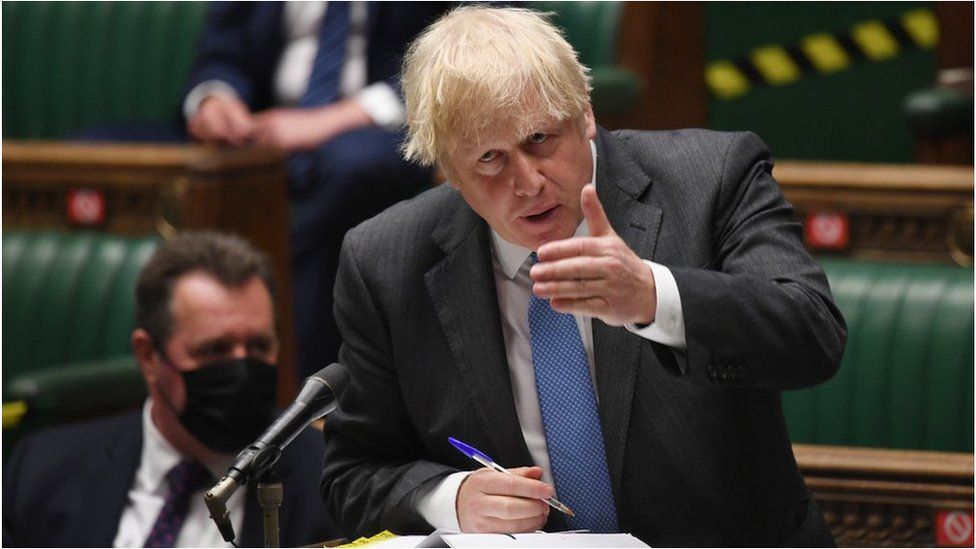
image copyrightUK Parliament/Jessica Taylor
The government’s border policy and whether it contributed to the spread of the Delta variant of coronavirus dominated exchanges between Boris Johnson and Labour leader Sir Keir Starmer at Prime Minister’s Questions.
First identified in India, Delta is now the dominant Covid-19 variant in the UK (responsible for 96% of new cases). Mr Johnson cited its spread when he announced a four-week delay to the lifting of restrictions in England.
And India was added to the red list, of countries with the government’s strictest travel restrictions, on 23 April 2021 – two weeks after neighbouring Pakistan and Bangladesh.
We’ve looked into some of the claims.
Public Health England declared Delta a “variant under investigation” on 28 April (although it was not named Delta until the end of May).
But it had been identified through genetic sequencing as being in the UK in the week beginning 8 March.
And it had been designated as a “variant of interest” by the World Health Organization (WHO) on 4 April.
While health bodies are constantly monitoring large numbers of emerging mutations, they are given these designations only if they seem to be making the virus spread faster, making people sicker or escaping the defences put up by vaccines or prior infection.
At a meeting on 21 January, the government’s scientific advisers, Sage, said: “No intervention, other than a complete, pre-emptive closure of borders, or the mandatory quarantine of all visitors upon arrival in designated facilities, irrespective of testing history, can get close to fully preventing the importation of cases or new variants.”
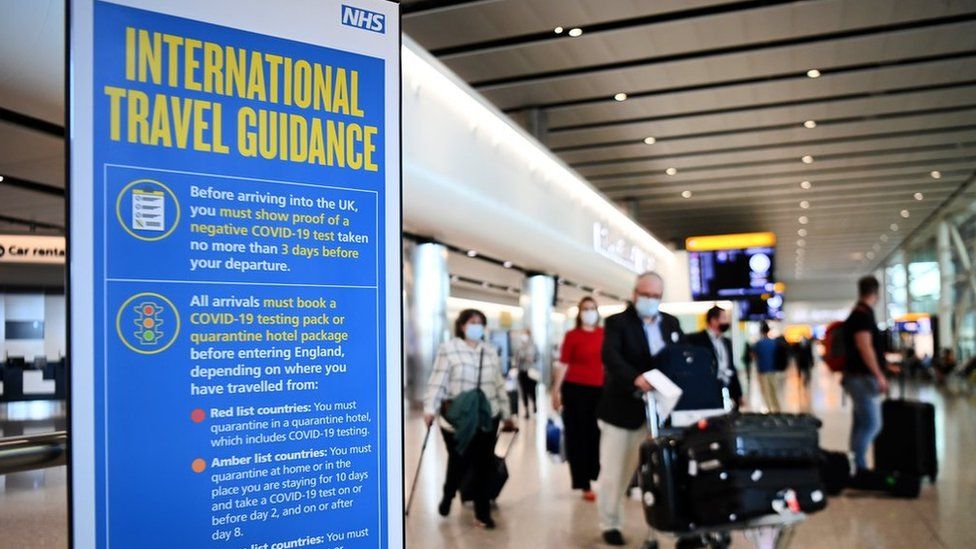
image copyrightEPA
And in its weekly update on 30 March, the WHO pointed out India had the third highest number of new cases in the world, with a 55% increase on the previous week.
The government has said it based its decision on adding India on the 23 April on case-positivity rates of travellers from India, Pakistan and Bangladesh arriving in the UK.
The Labour leader said this number had arrived in the UK in the month before India was put on the red list.
And according to the Civil Aviation Authority, a total of 42,406 people travelled between India and the UK in April.
It does not say how many of these were arriving or departing.
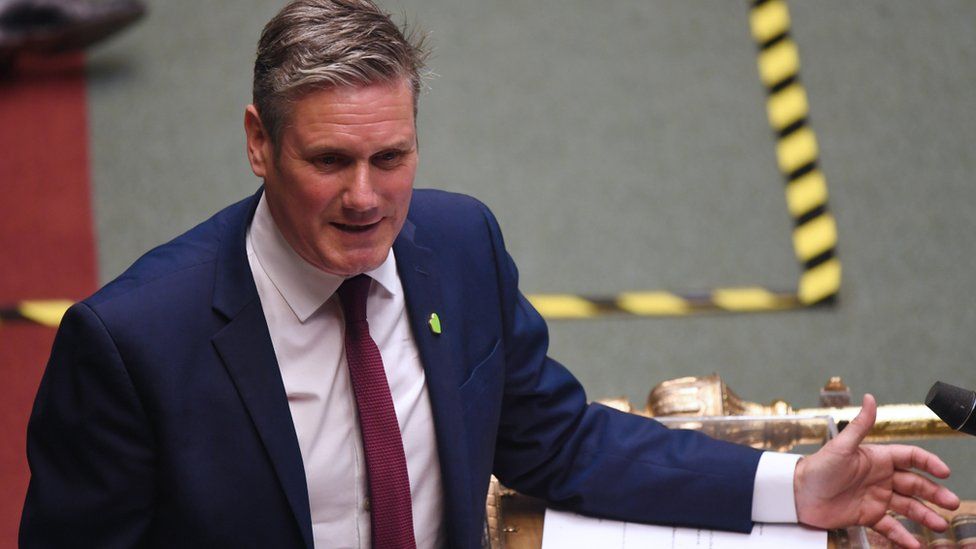
image copyrightUK Parliament/Jessica Taylor
Those arriving in the UK before 23 April, when India was still on the amber list, would have had to have taken tests for Covid-19 before and after flying.
And upon arrival, they would have had to self-isolate at home – or at another location – but not at a government-approved quarantine hotel.
An Office for National Statistics survey, which relies on people’s own reports – and on them knowing what the self-isolation rules are, suggests 86% of those required to were fully self-isolating as of mid-May.
Previous research has suggested this proportion could be significantly lower.
But this research made no distinction between people who breached isolation by, for example, taking a night-time walk on their own and those who continued going into work.
We looked for recent examples of Keir Starmer saying this and found one – from a year ago.
On 8 June 2020, Mr Starmer told LBC: “I do think measures are needed for people arriving in the country.
“We will support the government in that.
“I would much prefer to see some sort of testing regime at the airport.
“Quarantine is a bit of a blunt instrument.”
But his position on quarantine for arrivals has hardened since.
In the first two months of this year, he raised it three times at Prime Minister’s Questions.
And for months, Labour has been calling for a “comprehensive hotel quarantine system for all arrivals into the UK”.
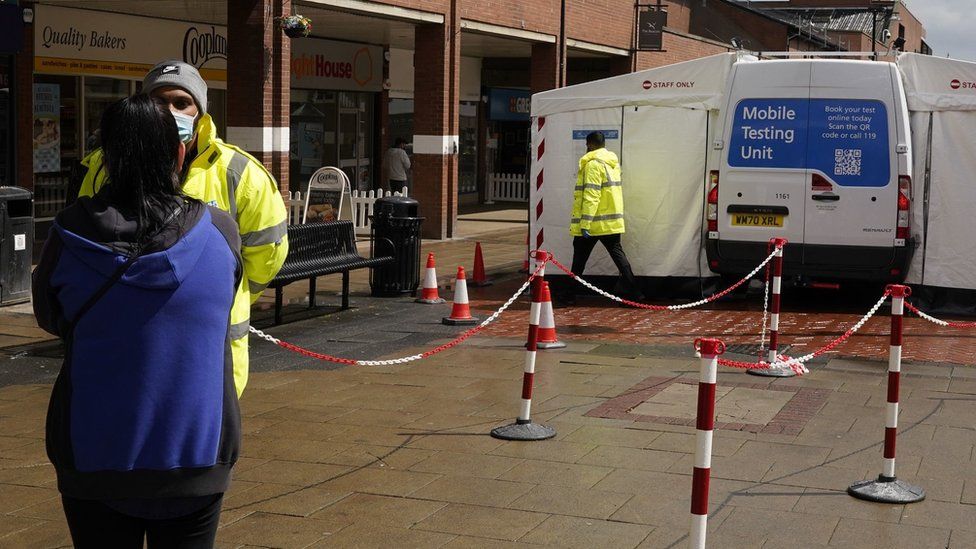
image copyrightPA Media
Labs around the world analysing the virus’s genetic material have been sharing their findings on a global database.
And this appears to show the UK has more cases of the Delta variant than most of the rest of the world.
But it is not a definitive record of how many cases there are.
It is a record of how many are spotted.
And the UK has a very good – and relatively fast – system for spotting variants.
So it is likely these figures disguise a much greater incidence of the variant in some other countries that conduct less sequencing – genetic analysis – of the virus.
Although some countries that do a lot of sequencing, such as Denmark, have not seen the same rise in the Delta variant as the UK.
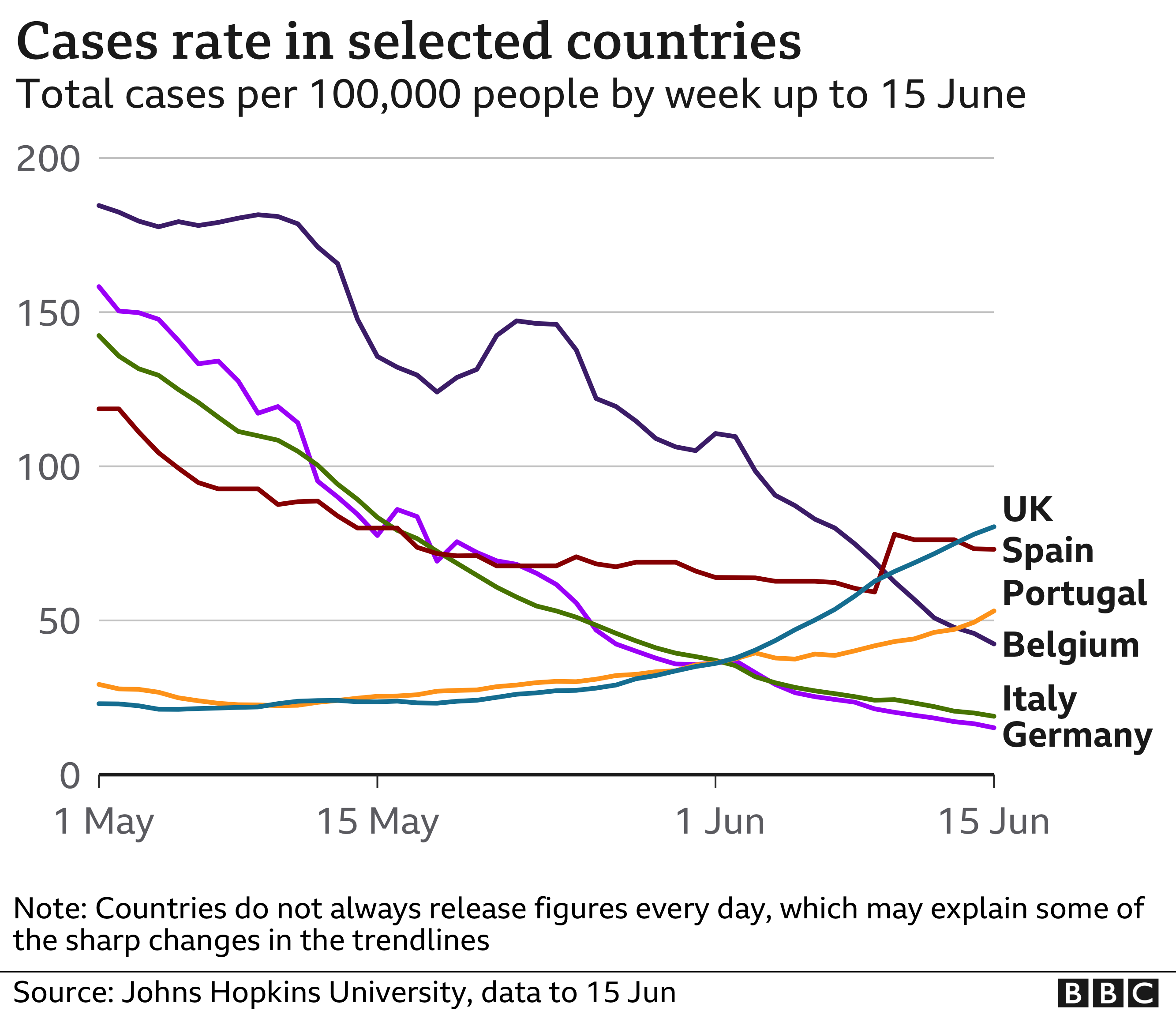
On the question of whether the UK has the highest rate of infections in Europe overall, the data does suggest that, although it is hard to make such comparisons because different countries count cases differently.
What we can say at the moment is cases in the UK and Portugal are rising while many of their neighbours are seeing cases falling.





